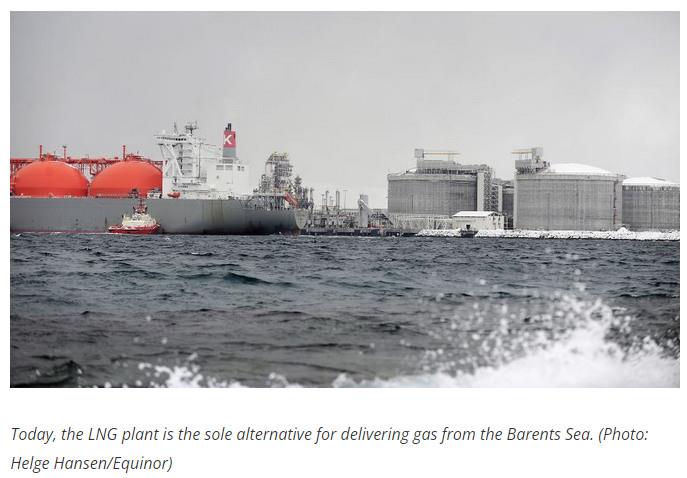
The Norwegian Petroleum Directorate reports that analyses show that the Barents Sea contains significant resources, probably more gas than oil. What needs to be done if Norway is to supply Europe with the requested volumes of gas?
The Barents Sea is like a separate petroleum province on the Norwegian shelf. There are currently three options for exporting more gas from the Barents Sea.
One option is a pipeline to connect the Barents Sea to the well-developed pipeline system that runs from the Norwegian Sea to the south and west. This option would make the Norwegian shelf a single petroleum province, tied together with solid and highly-developed infrastructure.
LNG transport
Another option is to expand capacity in the LNG plant on Melkøya, outside Hammerfest in Finnmark county. Today, the LNG plant is the sole alternative for delivering gas from the Barents Sea.
From here, current gas exports from the Barents Sea are in the form of liquified gas dispatched to the markets using specialised ships. The challenge is that gas from the Snøhvit field occupies all capacity at the LNG plant for a very long time, all the way to 2040.
Without new gas transport capacity, projections indicate that the plant will be fully utilised up to 2050, based on already proven resources in fields and discoveries.
A third option is to use gas from the Barents Sea to produce ammonia, which is then exported by ship.
If a new gas pipeline is approved and built, it would be connected to a well-integrated subsea system for gas transport.
Gassco is responsible for transporting gas to the European continent and to the United Kingdom through this system. The gas pipelines amount to a total of 8778 km of pipe.
Director General Torgeir Stordal at the Norwegian Petroleum Directorate (NPD) talked about opportunities on the Norwegian shelf during the ‘December conference’ in Kristiansund this week, and pointed to the fact that these are troubled times where energy security ranks near the top of the global agenda.
'Norway has a role that is more important than is generally understood. In a country such as ours, where we’re basically self-sufficient in our supply of electricity, many find it difficult to realise the importance of our gas for Brits and Europeans.'

Source: NPD











